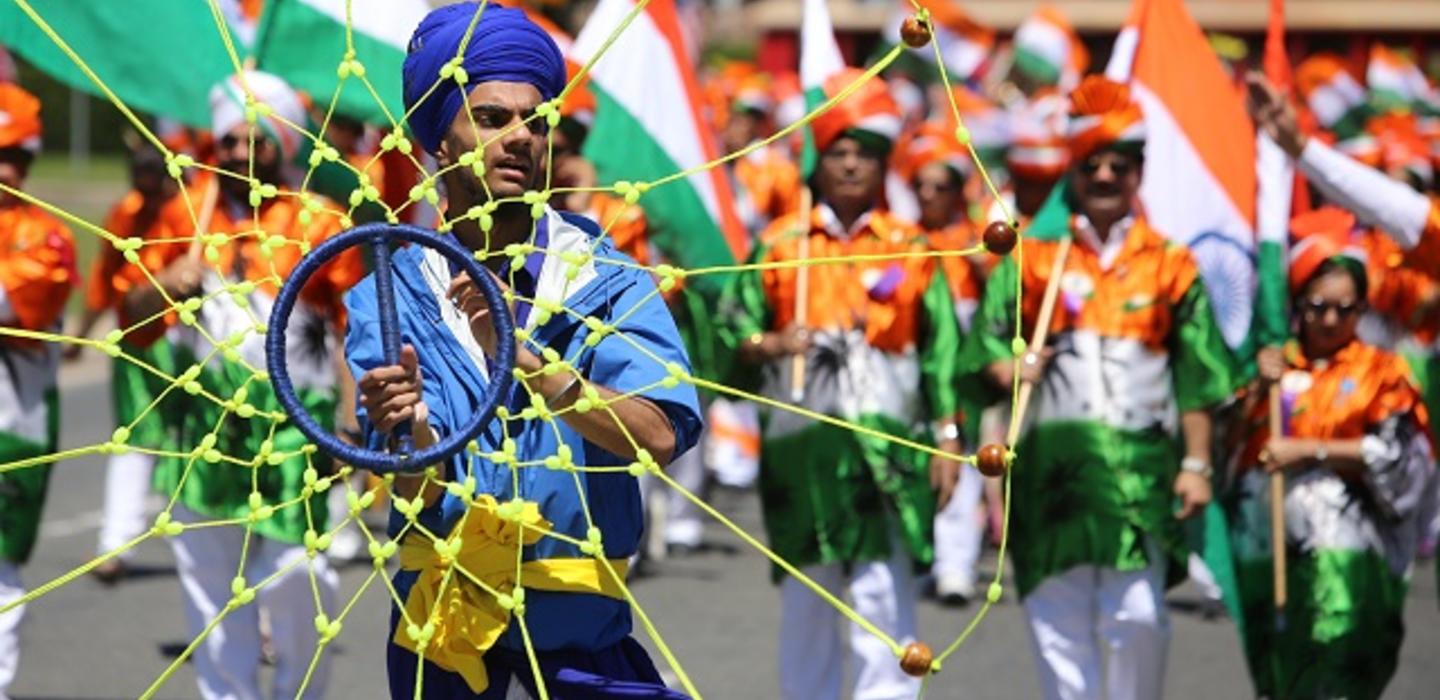Flags, costumes, dancers, marching bands, cheers and Lions as far as the eye can see: It must be the International Parade of Nations at the Lions Clubs International Convention.
Each year, Lions from as many as 130 countries participate in the annual procession on the second day of the convention, a tradition dating back to the early 1920s. The parade is an opportunity for Lions to display their enthusiasm for the association and their national heritage. Many Lions don traditional dress, colors or costumes representing their native lands for the march. They carry their countries’ flags with pride and sometimes sing and dance along the route, as well.
Lions-sponsored bands, floats and officers also join in the fun. Throughout the decades, officers have led the way in everything from horse-drawn carriages to floats. Past International President Earle W. Hodges, who served from 1930 to 1931, led the 1931 convention delegates and marching bands down the streets of Toronto in a purple and gold Studebaker car, courtesy of the Lions Club of Windsor, Ontario, Canada, the first Lions club established outside of the United States.
For Lions, the parade celebrates the bonds of friendship and displays the great reach of Lions’ service around the world. Anne Ford, a Lion from Trinidad, calls the parade her best memory from the 2014 Lions Clubs International Convention in Toronto. “It was nice to see all the traditional costumes of Lions from all the different countries,” she said. “We all gathered in one location and recognized that no matter what color, creed or race, we are all here to serve.”
But as always, Lions like to insert a little bit of fun and friendly competition wherever possible. Delegations may participate in contests to win cash prizes for the best floats, bands, uniformed marching delegations and precision demonstration units.
The parade is often the largest procession many host cities have seen in years, and with thousands of participants, it is truly spectacular to behold. Fellow Lions, convention guests and residents line the streets to exchange greetings and cheer on the delegates.
At the 1924 Lions Clubs International Convention in Omaha, Nebraska, a sense of excitement filled the air as some 2,500 Lions from across the U.S. and Canada took part in the celebratory procession. The event became even livelier when Lions from Colorado began a snowball fight at the end of the parade. The Colorado delegates had brought in loads of snow by railway car from the mountains back home and couldn’t resist sharing a mid-summer surprise—a first for Omaha in June.
Parades grew larger over the years as clubs formed across the globe. Marching bands became a staple and floats a common sight, with usually at least one float taking the shape of a lion. About 15,000 Lions marched in the parade during the 96th International Convention in Hamburg, Germany, in 2013. Today, there are so many participants and performances, the procession lasts several hours.
The parade has been and remains a highlight of the convention each year, placing the exuberant camaraderie and global spirit of Lions on display for all to see.

